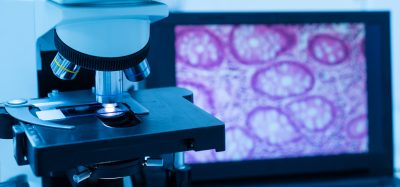Chemical reactions database updates to improve R&D information exchange
Posted: 26 February 2020 | Victoria Rees (Drug Target Review) | No comments yet
The newest version of the Unified Data Model (UDM) project has been released, allowing R&D scientists to access information on compound synthesis and testing.


The latest file format of the Unified Data Model (UDM) has been released by the Pistoria Alliance, a global, not-for-profit organisation. According to the alliance, this update delivers a stable foundation for the collection and exchange of chemical reaction data and empowers the R&D community to move forward with its adoption.
The release is built upon standard (Allotrope-compatible) vocabularies for units of measure and analytical methods, allowing the systems to be interoperable. The alliance emphasises that as increased adoption of artificial intelligence (AI) and machine learning (ML) in R&D continues, industry-wide data standards are essential in the move towards the digitally driven Lab of the Future (LoTF).
The latest update of the UDM seeks primarily to improve the semantics and validation of data. Without alignment on terms and data models, great opportunities to see trends or wider patterns are missed, says the organisation. Standardised harmonisation of data is especially important in this time of increased AI, ML and deep learning use, which are reliant on high quality data to improve outcomes and predictions.
This most recent version has been supported by funding from Biovia, Elsevier, GlaxoSmithKline (GSK), Novartis, Roche and Bristol-Myers Squibb (BMS).
The latest update of the UDM seeks primarily to improve the semantics and validation of data”
“The UDM is exactly the type of essential project the Pistoia Alliance was formed to work on – it enables internal and external collaboration and ultimately helps to accelerate innovation and discovery,” commented Dr Steve Arlington, President of the Pistoia Alliance. “Following this latest update, the project is now shifting into a support phase to help companies adopt the UDM model. Most recently we have secured additional funding from BMS to allow us to continue the project to benefit users and we are pleased to welcome Cynthia Beno from BMS to our steering committee. We are also currently looking for additional funding in order to develop a toolkit which would bring together methods, techniques and literature to support the adoption of the UDM.”
“At Roche, we are very excited to continue to be involved in the UDM project and we recognise its value to the research community,” commented Brian Jones, Principal Scientist of Discovery Informatics at Roche and UDM Project Champion. “It is great to have progressed the UDM to this stage and to now move to supporting and promoting the adoption of the model.”
“It’s fantastic to see the UDM continue to develop under the project team’s stewardship and to serve the R&D ecosystem. Elsevier donated the original UDM to the Pistoia Alliance and we hope it continues to succeed and promote collaboration in the future,” commented Tim Hoctor, Vice President of Professional Services at Elsevier and board member of the Pistoia Alliance.
Related topics
Artificial Intelligence, Big Data, Informatics, Internet of Medical Things, Research & Development
Related organisations
Biovia, Bristol-Myers Squibb (BMS), Elsevier, GlaxoSmithKline (GSK), Novartis, Roche, The Pistoria Alliance
Related people
Brian Jones, Cynthia Beno, Dr Steve Arlington, Tim Hoctor








